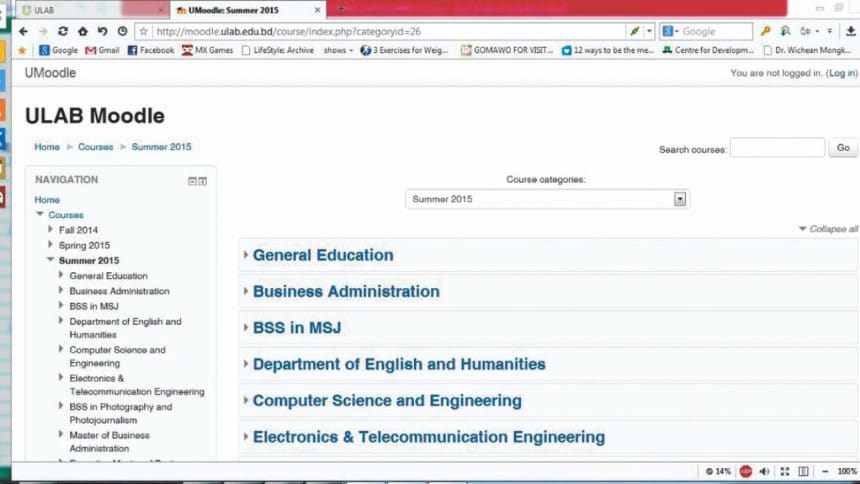MOODLE AT ULAB
With the advancement of technology, online learning has become a viable and acceptable mode of teaching and learning throughout the world. As a forward-thinking university that promotes the liberal arts, ULAB has become a pioneer in the field of online education in Bangladesh and has adopted the learning management system (LMS) Moodle to supplement face-to-face classes. Moodle is an open source LMS that is customisable, versatile, and easy to use.
Using Moodle, faculty members can upload lectures in different formats including videos; give and receive assignments; return graded work with comments; conduct quizzes; have online discussions; take attendance; and so on. Best of all, grades are all available in real-time. This means students can see where they stand at any given moment during the semester.
The transparency accorded by the availability of grades and the overall picture they present to students is widely appealing and is one of the reasons both students and faculty have welcomed this initiative at ULAB. A Moodle app available on all smartphones has also encouraged the usage of Moodle across the board.

By adopting this system and integrating it with every course in a given semester, ULAB has provided faculty and students with an opportunity to explore learning outside the classroom. Accessibility from home and anywhere on campus allow both parties to communicate in ways that enhance participation like never before. Learning, therefore, can continue if students cannot attend classes for any reason or faculty members are on leave.
The adoption of Moodle also supports ULAB's “Going Green” programme that has been launched to make the university the first completely sustainable campus in Bangladesh. By accepting assignments online and by uploading syllabi, lectures, and handouts, faculty and students have reduced their use of paper significantly.
A training workshop is held every semester for this purpose. Faculty members are expected to introduce students to Moodle at the beginning of the semester and instruct them as and when the need arises during the term.
The writer is Assistant Professor, Department of English and Humanities, ULAB

 For all latest news, follow The Daily Star's Google News channel.
For all latest news, follow The Daily Star's Google News channel. 



Comments